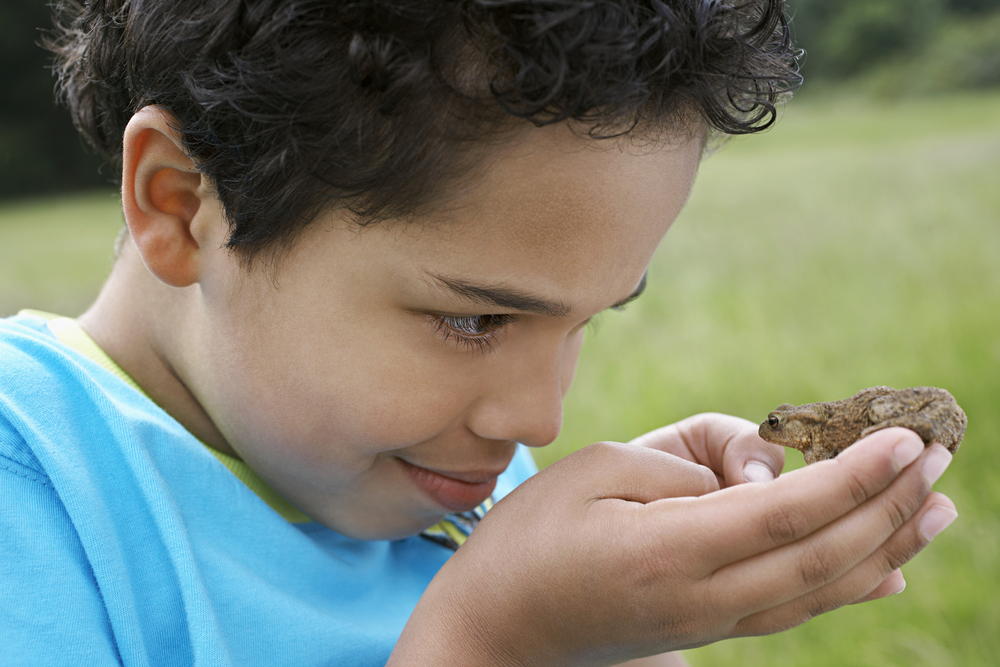Reading practice Normal Science Worksheets for Ages 6-8
4 filtered results
-
From - To
Discover our engaging Reading Practice Normal Science Worksheets, specifically designed for children ages 6-8. These printable worksheets help young learners enhance their reading comprehension while exploring exciting science topics. Each worksheet features age-appropriate texts paired with interactive questions that encourage critical thinking and reinforce vocabulary. With fun illustrations and a variety of exercises, these worksheets make learning science enjoyable and effective. Perfect for classroom activities or home study, our resources foster a love for reading and curiosity about the world. Equip your child with essential literacy skills while igniting their interest in science with our carefully crafted worksheets!
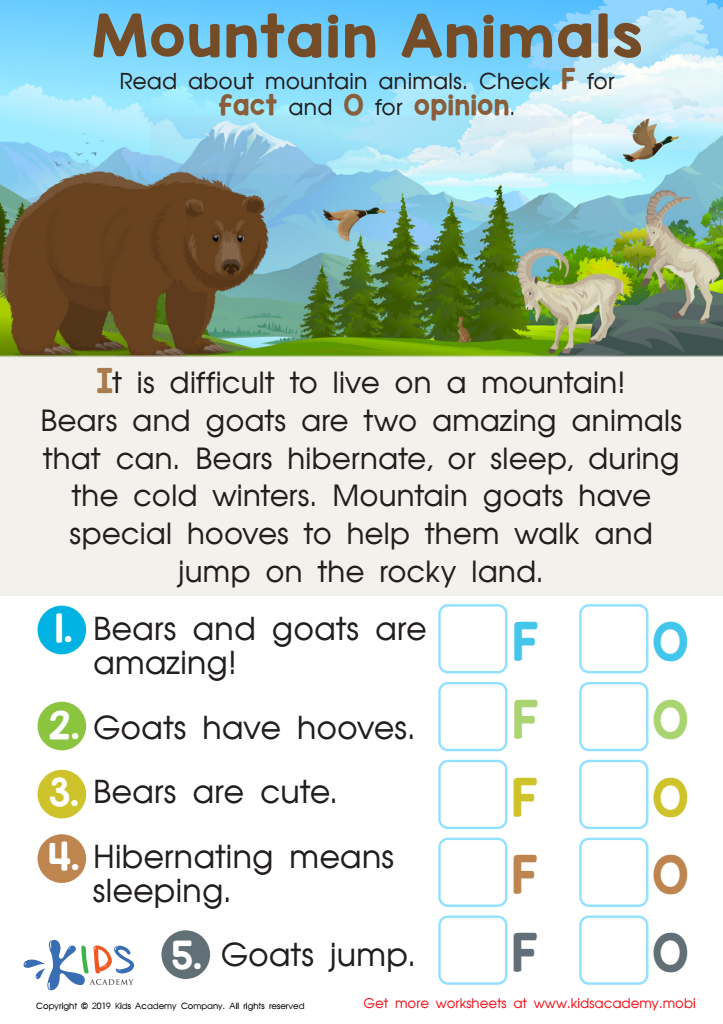

Mountain Animals Worksheet
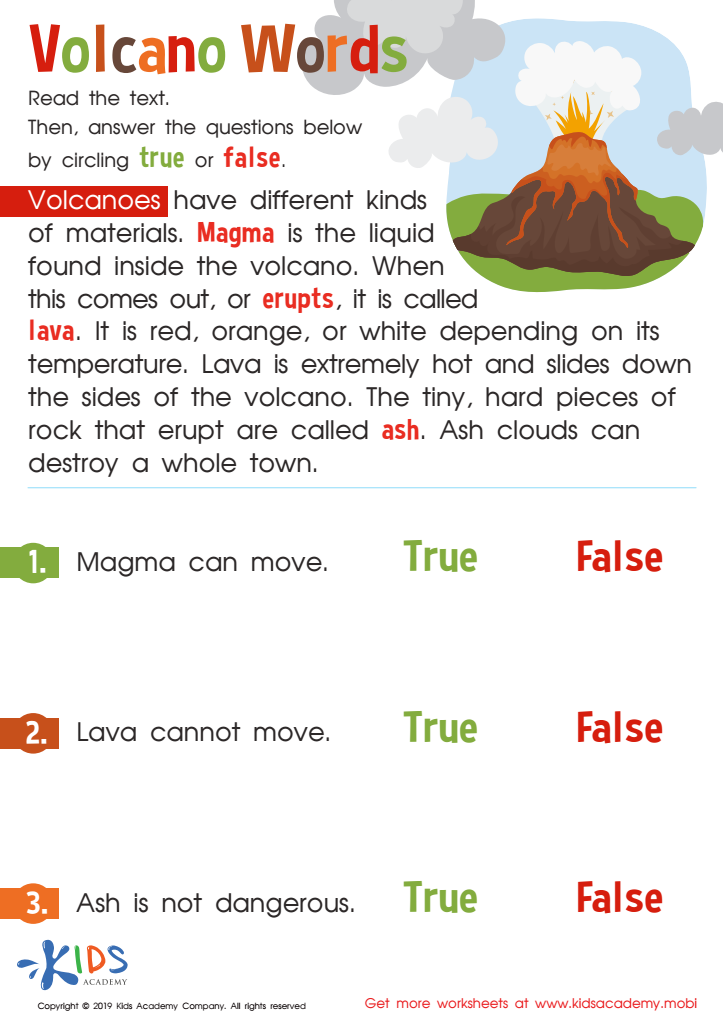

Volcano Words Worksheet
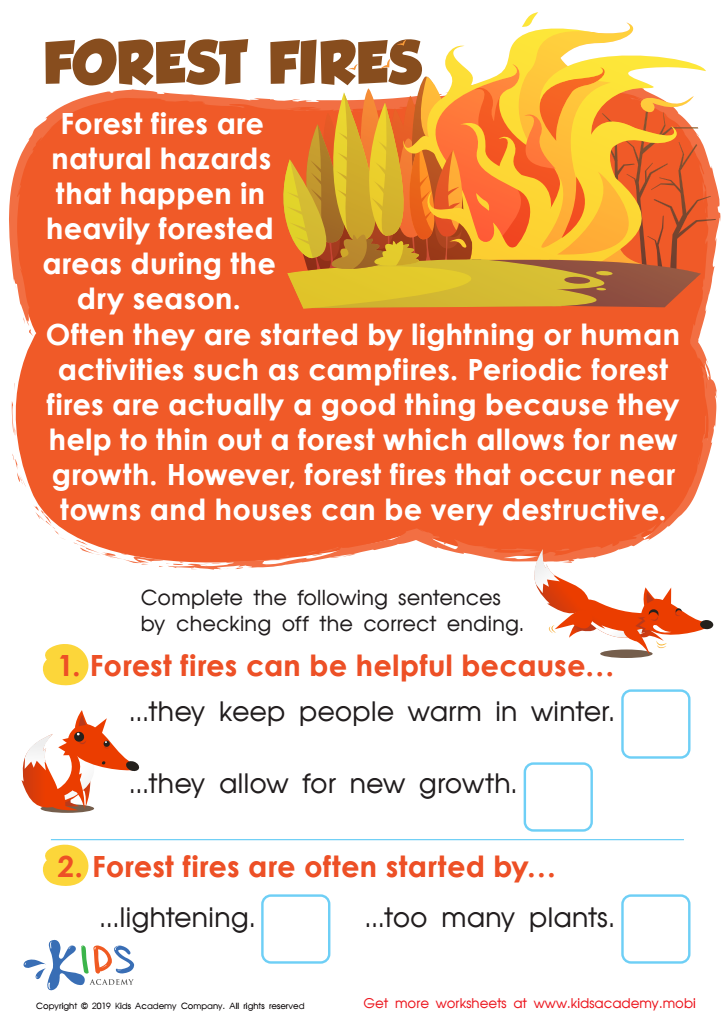

Forest Fires Worksheet
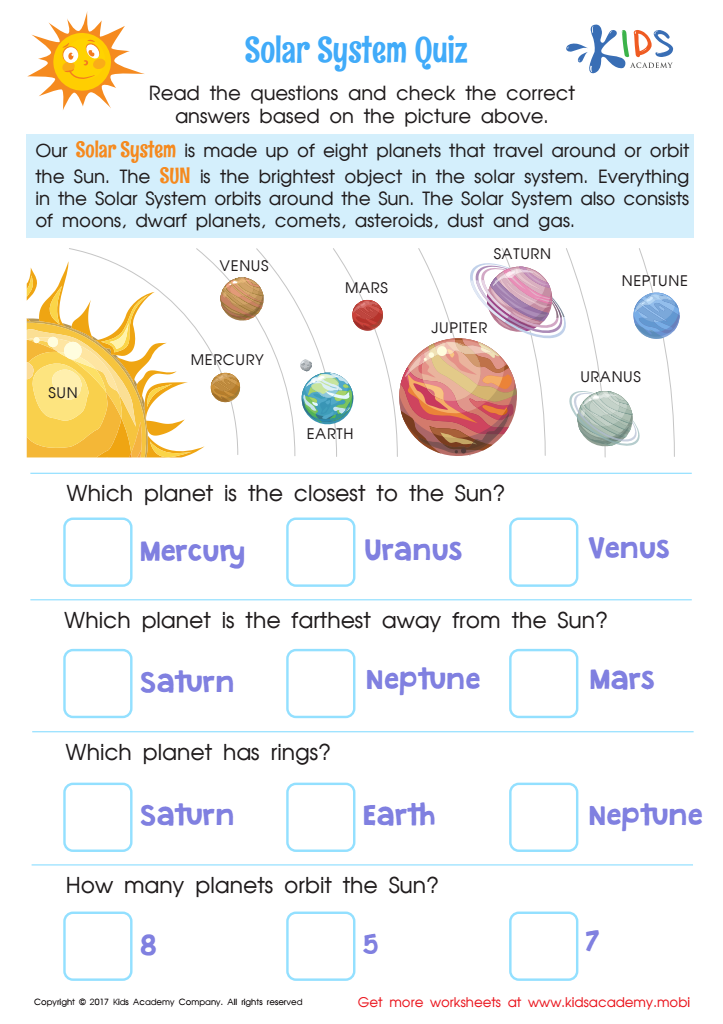

Solar System Quiz Printable
Reading practice in Normal Science for ages 6-8 is essential for several reasons. At this developmental stage, children are curious about the world around them, and engaging with scientific texts fosters this natural curiosity. Science reading provides them with the vocabulary and concepts needed to explore larger questions about their environment, from understanding basic life processes to recognizing the importance of ecosystems.
Furthermore, reading practices enhance literacy skills, promoting critical thinking and comprehension abilities that are foundational not only in science but across all subject areas. As children digest scientific information, they learn to analyze data, draw conclusions, and articulate their thoughts—skills integral to academic success.
Moreover, instilling a love for science at an early age encourages lifelong learning. When children can connect what they read to real-world experiences, their engagement deepens, making learning more meaningful. Parents and teachers play a crucial role in this development, as they can introduce age-appropriate resources that stimulate discussions and experiments based on what the child reads.
Ultimately, fostering reading in Normal Science helps create informed, inquisitive individuals ready to tackle the challenges of tomorrow, emphasizing the relevance of science literacy in an increasingly complex world.
 Assign to My Students
Assign to My Students



